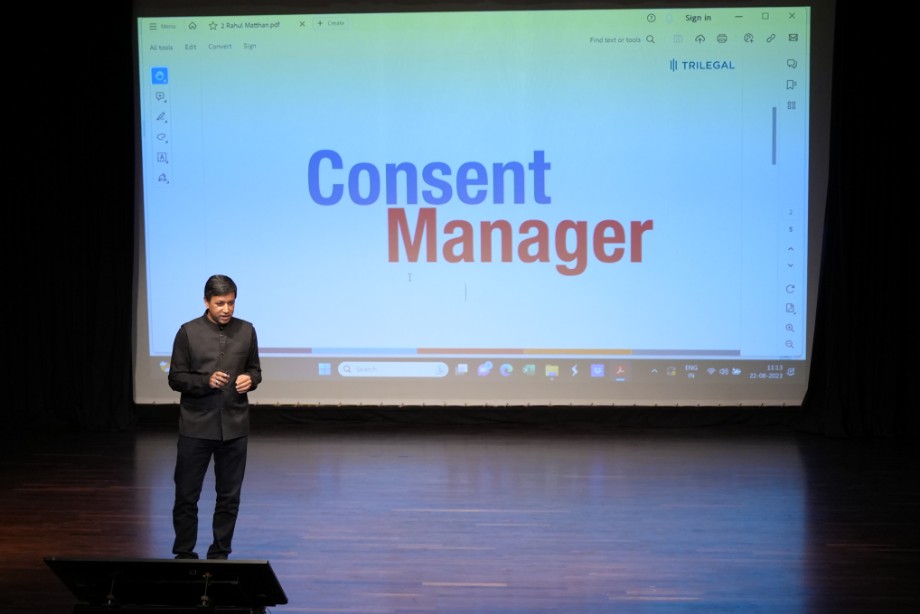Digital Personal Data Protection Act Implications for the AA Framework
Rahul Matthan, founder-partner of Trilegal and head of TMT practice, addressed the workshop on the implications of the Digital Personal Data Protection Act 2023 on the Account Aggregator (AA) ecosystem. He delved into several critical aspects that have shaped India’s digital landscape, including a comprehensive analysis of the journey of data governance in India and its potential impact on the AA framework.

One of the standout features he emphasized is the newfound importance of consent managers in a separate section. The emergence of consent managers holds a significant role, possessing distinct categories and powers, even requiring registration with the Data Protection Board. Matthan underlined the groundbreaking potential of this development, particularly in fostering cross-sectoral cooperation between domains such as health and finance.
However, Matthan addressed a few missed opportunities within the Act. He highlighted the absence of the right to data portability, a feature that could empower individuals to request and transfer their data from one service provider to another. In this regard, Matthan sees promise in the electronic consent artefact within the AA framework as a potential avenue for implementing this right, ultimately benefiting the Indian populace.
He reiterated the importance of the techno-legal approach, where technology plays a pivotal role in establishing legal rights. He envisioned an entirely digital ecosystem characterized by digitally signed transactions that can serve as concrete evidence in dispute resolution. This transformative approach could streamline the cumbersome process of seeking legal dispute resolution.
Further, Matthan explored the practicality of using dashboards as a potential framework for swift dispute resolution in digital transactions. He explained that dashboards can efficiently pinpoint responsibility in complex transactions, potentially minimizing protracted legal disputes. Additionally, he shed light on the importance of tokenized evidence in court cases, particularly the acceptance of digitally signed information as valid evidence. Matthan suggested that solving the “65B problem of the Indian Evidence Act” could pave the way for establishing a fully digital governance framework.
Rahul Matthan’s examination of the Digital Personal Data Protection Act underlined the profound implications for the evolving AA framework, showcasing the potential for India’s more efficient, interconnected, and digitally driven future.
This workshop was co-hosted by Vidhi Centre for Legal Policy and Sahamati. Check out the link for more speakers and their blogs: https://sahamati.org.in/events/governance-for-data-empowerment/